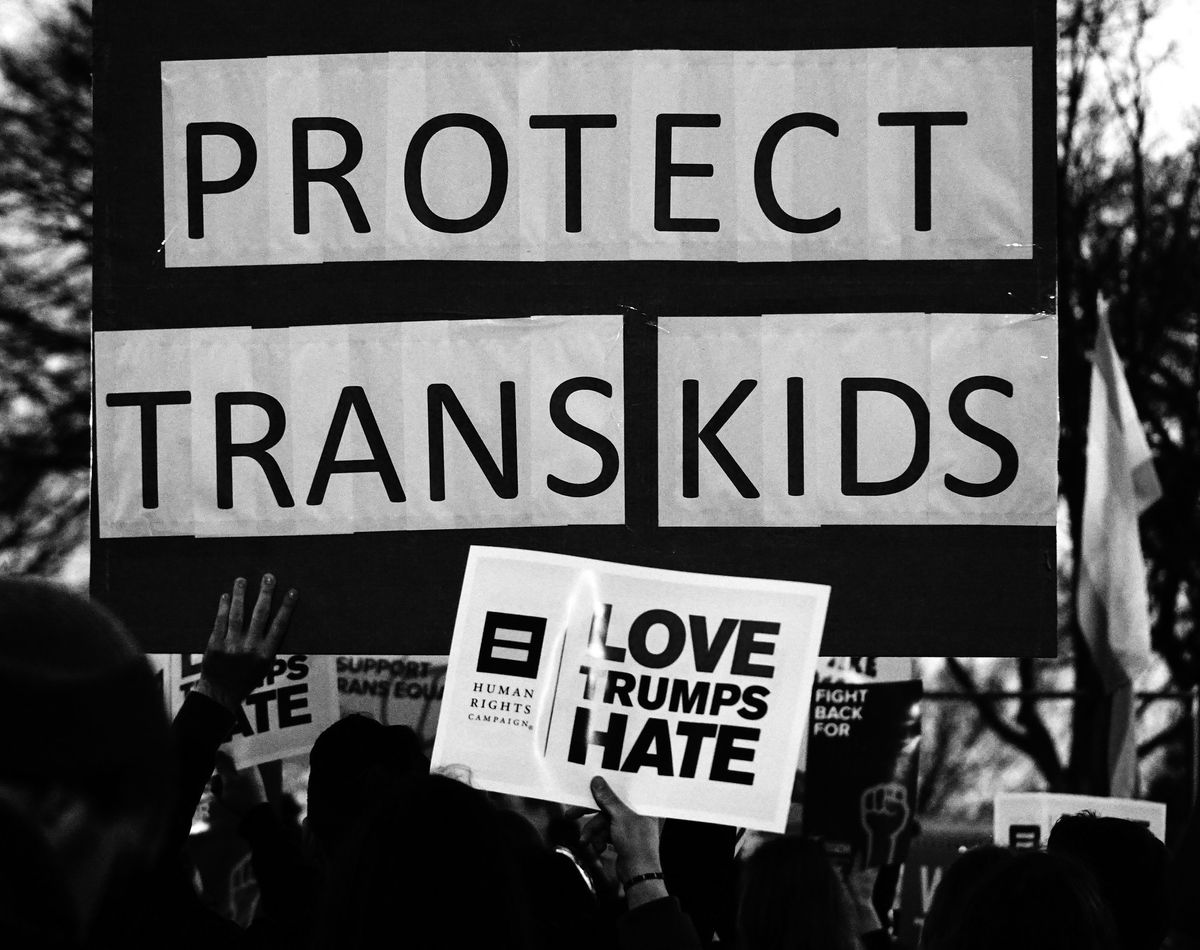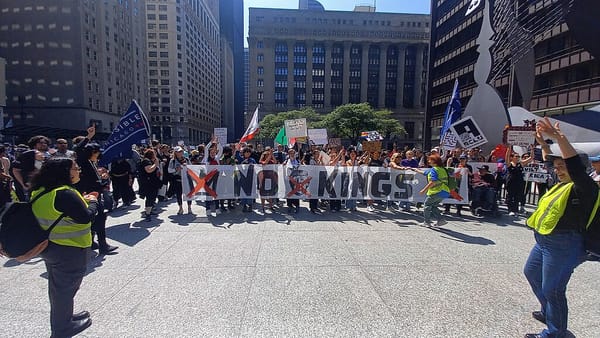The Liberal Tradition Against Anti-Trans Laws

On February 22, 2022, Texas Governor Greg Abbott directed the Department of Family and Protective Services to refer for prosecution parents of transgender minors who are receiving gender-affirming medical care. He concurred with an opinion, released a few days prior, by the Texas Attorney General Ken Paxton that giving minors such care constitutes child abuse under Texas law. In doing so, he indicated that mandatory reporters of abuse, such as teachers and doctors, may lose their jobs if they fail to report the parents of such youth to the government. A spokesperson for the Department of Family and Protective Services has said the agency intends to implement Texas law in accordance with Attorney General Paxton’s opinion, and according to a lawsuit filed on March 1 by the ACLU and Lambda Legal, they have already begun investigating the parents of trans minors.
These immediate facts are tragic enough, but the context surrounding these actions highlights the cynical politics and bleak electoral environment that prompted this. The past few years have seen legal pressure intensifying against trans youth. By the Human Rights Campaign’s count, over 100 bills aimed at attacking trans youth were proposed in 2021, several of which passed. 2022 is looking no better. March has hardly begun and yet over a hundred bills attacking trans people have already been proposed, roughly half of which target trans youth specifically. This is not born out of a genuine concern for trans youth. A particularly vivid example of this is South Dakota’s Governor bemoaning the high rates of depression and anxiety among LGBTQ youth directly after banning transgender youth from playing school sports with their friends. Transgender people are Republican’s new favorite wedge issue, and they have determined that the most effective way to wield this topic is to target kids.
This strategy has not been matched with an equal or greater opposition. While Republicans see the potential for a marginal gain in votes, Democrats often see standing up for transgender people as an electoral liability. At the very least, Republicans see attacking trans people as a path to victory, while no one sees standing up for trans people as a means to electoral success. While the Biden administration has increased the pressure against Texas, threatening to pull federal funds from DFPS if they begin getting reports that they are pulling trans kids from their families, this the sole real response to only one of many attacks.
The response from the business community has been even more tepid, especially when compared with their response to North Carolina’s HB2 in 2016, which made it illegal for transgender people to use the appropriate restroom. At that time, there was widespread and significant business backlash, including the NBA moving their 2017 All Star game out of the state. Much more harmful bills and executive orders have been considered and passed since HB2, with no parallel escalation in consequences.
And, much to my dismay, the mythical transgender cabal which forces its agenda on the innocent populace is nowhere to be seen; as it turns out, a demographic which has almost no presence in the halls of power does not, in fact, have much power. There are no transgender people in Congress, or in the federal judiciary, and a lone high-profile transgender person in the executive branch. There are no transgender state governors, and only a handful of transgender state legislators.
Because of the lack of a true response (and a lack of obvious places to find one), there is no end in sight for this wave of anti-trans governance. The situation is bleak. And yet, liberals cannot abandon this fight without forfeiting their right to call themselves liberal. The number of justifications the liberal tradition can muster for opposing these actions is voluminous.
Drawing on the deliberative tradition, one can oppose the cynical, bad faith justifications for these actions, and how those who are truly impacted by them have been excluded from the process. To be sure, there has been some nominal inclusion; transgender people and their allies have been giving testimony after testimony during legislative debates over these bills, for example. But this nominal inclusion in the deliberative process has amounted to little more than a sham, as political opportunism dictated votes. The impact of transgender inclusion on most people is negligible, with all moves made thus far hardly changing any cisgender person’s life, and yet conservative politicians continue their handwringing about how allowing a kid to play sports with their friends will ruin lives, or how allowing a parent to make medical decisions for their child in coordination with their physician is child abuse. A proper deliberative process would not give so much weight to panicked imaginations and so little to actual day-to-day lives.
One can also draw on the capabilities approach by arguing that crushing youths’ freedom to live authentically causes lasting harm to their ability to determine the course of their own lives. The capabilities approach, as pioneered by Amartya Sen and popularized by Martha Nussbaum, sees well-being as defined by the ability of a person to be and do what they choose. Given that minors with consistent, insistent, and persistent gender identities do in fact have stable gender identities, demanding they act gender-conforming and even forcing them to go through endogenous puberty causes harm to their development. Early on core aspects of their identity become suppressed, and in the better cases they are set back years. In the worst cases they are unable to recover what has been denied them at all.
Classical liberal Adam Smith’s sympathetic method would revolt against this state persecution of transgender people for the sheer suffering it causes, and Millian utilitarianism would be very critical given the fact that minimal happiness is derived from such discrimination. In the 2015 United States Trans Survey, 17% of respondents who were out or perceived as transgender in their K-12 school left because of intense discrimination, 20% believe they were punished more harshly than their peers because they were trans, and 52% were not allowed to dress the way they wanted in school. Those who experienced discrimination in K-12 education were more likely to end up homeless and work in the underground economy than those who did not. The same survey reported that many transgender people have had negative experiences at government locations and due to government regulation; in my own life, I’ve been turned away from a doctor’s office because of a gender marker mismatch, the office administrator explaining that it was due to government regulation. Of course, no discussion of government meddling in transgender people’s lives would be complete without talking about the TSA, which is notorious for verbally harassing, shaming, and strip-searching transgender women with shocking regularity. It is difficult to see how the immense pain caused by state-sanctioned discrimination can be justified.
Lastly, as Charles Wade Mills would put it, the liberal tradition is stridently melioristic, retaining hope that we can improve our society, despite the challenges. This doesn’t mean that all challenges are necessarily going to be overcome. Rather, the liberal tradition often insists that we at least act as though we can build a better world. Whether by radical or by reformist means, the liberal takes a critical look at society to ascertain where action might make society more free and equal. Even though things look dark now, we must keep the faith that we may yet do better than this.
Things do look quite dark now. The rhetoric against transgender people is escalating to what is possibly the worst since the emergence of HIV, with figures as high profile as Congresswoman Marjorie Taylor Greene calling for people to violently assault trans people. The political attacks are intensifying as more and more transgender people are being reported as murdered. All the while, the opposition is not rising to the challenge, and the way forward remains unclear. But liberals and transgender people must keep the faith that a better world is possible. Nothing else is acceptable.
Featured Image is Protect Transgender Students by Victoria Pickering




